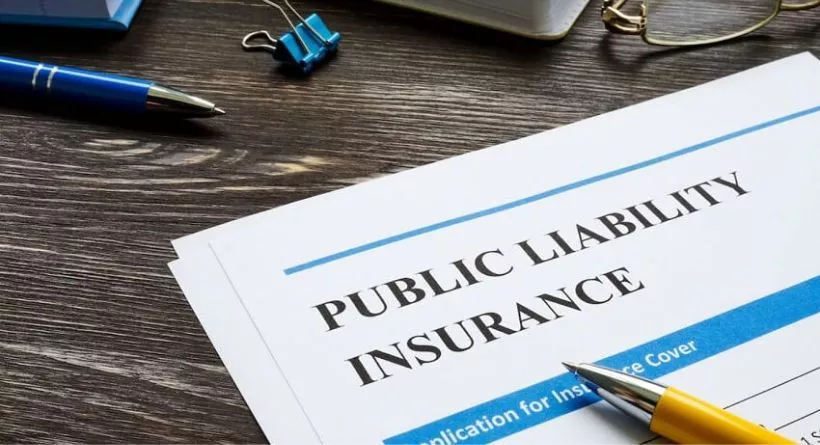Running a business comes with many responsibilities, and one lurking concern is the risk of a third party suffering damage due to your business activities. Accidents happen, and when they do, the financial repercussions can be severe. This is where public liability insurance steps in. It’s a crucial safety net, shielding you from the potentially crippling costs of claims made against your business. Through this blog post, we promise to delve deep into the intricacies of public liability insurance, demystifying its importance, how it works, and why you might need it.
Understanding Public Liability Insurance
Every business, regardless of size or industry, grapples with a certain level of risk. It’s part and parcel of the game. But the right insurance, such as public liability insurance, can soften the blow of these risks, providing that much-needed safety net.
In its simplest form, public liability insurance is your business’s financial protector. It’s designed to cover compensation payouts and legal costs if a third party – be it a customer, supplier, or passerby – is injured or their property is damaged due to your business operations.
But why is public liability insurance such a cornerstone of business risk management? Think of it as the unseen buffer, absorbing the financial shock that often accompanies unexpected incidents. For instance, if a client were to trip over your laptop cord, injuring themselves, your business could be held responsible. Public liability insurance ensures that potential legal and medical expenses won’t put your business finances in a chokehold.
Examples of public liability insurance at work aren’t hard to find. Consider a local cafe where a patron accidentally spills hot coffee on another customer, resulting in burns. If the injured customer decides to pursue a claim against the cafe, public liability insurance would step in, covering the legal and compensation costs. It’s not just a theoretical benefit – it’s a real-life business saver.
Also Read: How to Build Business Credit Quickly
How Does Public Liability Insurance Work?
Diving into the details of public liability insurance, it’s crucial to understand what’s covered under the policy. In essence, this insurance covers legal costs and compensation claims if your business is found liable for injury or property damage to a third party. These could be scenarios like a customer tripping over a misplaced toolbox at your shop or an incident where your equipment damages a client’s property.
Equally important is being clear about what public liability insurance does not cover. It’s not a blanket shield. Employee injuries at work, for instance, fall under a different policy – employers’ liability insurance. Additionally, damage to your business property is not covered under public liability insurance. That’s where your business property insurance steps in.
The claims process for public liability insurance is fairly straightforward. In the event of an incident, contact your insurer at the earliest. Provide a detailed account of the occurrence. Your insurer then steps into action, addressing legal procedures and potential compensation payouts. Remember, your cooperation is key during the claims process.
Indeed, public liability insurance is a vital cog in the risk management machinery of your business. While it can’t prevent mishaps, it can certainly cushion their financial impact, allowing you to navigate the stormy seas of business operations with confidence.
Who Needs Public Liability Insurance?
Public liability insurance is a fundamental safeguard for a vast range of businesses. In particular, those with frequent public interactions, like retail stores, restaurants, and construction companies, sit in the high-risk bracket. However, remember, accidents are unpredictable. Even seemingly low-risk businesses, like consultancies or home-based enterprises, can face claims. Therefore, as a business owner, having public liability insurance offers you peace of mind.
While no law in the UK mandates businesses to carry public liability insurance, certain trades or client contracts may require it. That said, it’s beneficial to consider it as voluntary coverage. It’s a safety net that protects your business from unforeseen financial pitfalls resulting from liability claims.
Consider a real-life scenario: a client visits your premises, slips on a wet floor, and sustains an injury. Without public liability insurance, you could face a hefty compensation claim. In another instance, imagine your equipment accidentally causing a fire at a client’s site. Again, you’d be on the hook for significant damages. In both cases, public liability insurance would cover the financial impact, thereby safeguarding your business.
So, whether mandated or not, public liability insurance is a wise investment for most businesses. It’s about being prepared because, in the world of business, it’s not just about making the right moves, but also about buffering the wrong ones.
Choosing the Right Public Liability Insurance

Navigating the world of insurance can feel like traversing a maze. So, when it comes to understanding public liability insurance policies, pay particular attention to the terms and conditions. It’s crucial to know exactly what you’re covered for and where the exclusions lie. It’s not just about having an insurance policy; it’s about having the right one.
Comparing insurance providers is an essential part of this process. Not all insurers are created equal, and their offerings can differ significantly. Look for reputable providers with positive customer reviews and robust financial health. Don’t just look at the cost. Remember, an inexpensive policy that doesn’t provide the coverage you need won’t serve you well in the long run.
Here are some tips to get the most out of your public liability insurance:
- Always disclose all relevant information about your business activities. Any inaccuracies can lead to a rejected claim.
- Regularly review your policy to ensure it’s still suitable, especially if your business changes or grows.
- If you work with subcontractors, make sure they’re covered under your policy or have their own.
Conclusion
Understanding and choosing the right public liability insurance policy isn’t just about risk management; it’s about peace of mind. From grasping its significance to appreciating its practical applications and knowing how to select the right provider, every step is crucial. You have now learned why this cover is a critical component of running a business, particularly for those operating in the public sphere. Remember, the best protection is the one that fits your unique business needs and mitigates potential risks.
As you journey through the complexities of public liability insurance, don’t lose sight of its core purpose: safeguarding your venture and ensuring its longevity. Now you are equipped with the knowledge to make an informed decision, let it guide you toward building a more resilient business.

